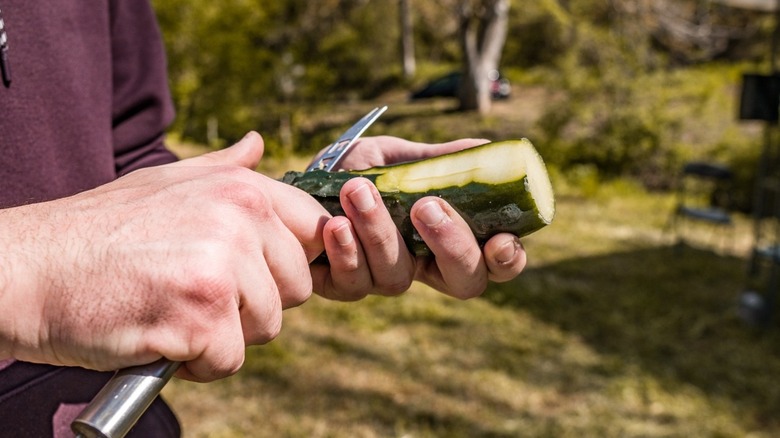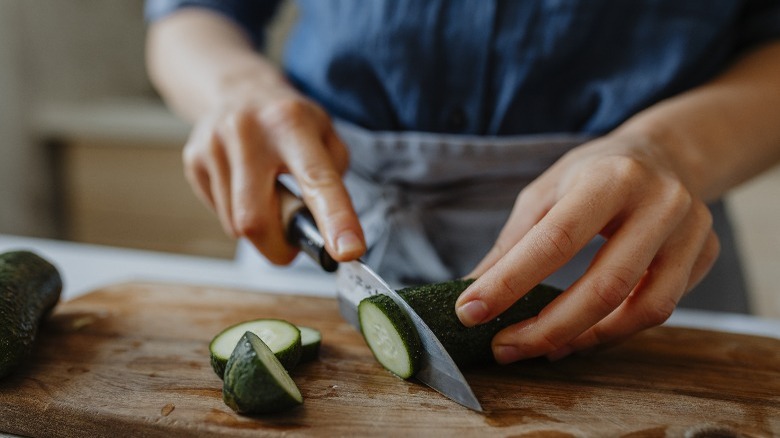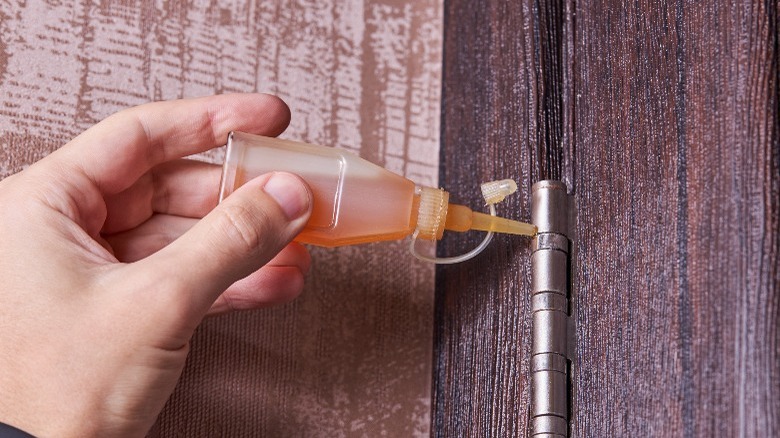Is A Cucumber Really The Secret To Fixing A Noisy Door Hinge?
Squeaky doors are infamous for waking sleepers, interrupting those deep in concentration, and rather inconveniently, announcing your midnight snack raids to the whole household. More often than not, this irritating noise is caused by either the accumulation of dust and dirt or the friction and rubbing between the metal surfaces of the hinge pin and the hinge itself — typically resulting from insufficient lubrication.
Noisy door hinges are such a frequent household issue that many homes keep a can of WD-40 in their toolbox for a quick fix. However, there are also numerous DIY solutions using everyday household items to eliminate the squeak. Among the most popular tips circulating on the internet is the claim that applying cucumber to the hinge can effectively silence the noise. The solution that people argue for is simple: take a slice of cucumber and rub it along the problematic hinge. The idea is that the juice from the cucumber can seep into the tiny crevices of the hinge, penetrating its interior and providing enough lubrication to fix your noisy door hinge ... at least temporarily.
Why cucumber may not the ideal hinge lubricant
While cucumbers are a creative suggestion for silencing a squeaky hinge, they might not be the best natural lubricators to rely on. Cucumbers typically have a wax coating on their skin, but this is primarily for prolonging shelf life and preventing spoilage. Rubbing a slice of cucumber won't likely transfer any wax to the hinge.
Additionally, cucumbers consist of about 96% water. Because of this, any cucumber juice applied to a hinge will likely evaporate quickly. Despite their juicy nature, cucumbers don't possess the slimy or waxy texture needed for adequate lubrication. On the flip side, a slimy or mushy texture in a cucumber is an indication that it's already rotting.
While cucumber oil does exist and is a great moisturizer, it's derived from the seeds through cold-pressing and filtration and is not a component of the cucumber's flesh or skin.
Other household items to use on a squeaky door hinge
If your hinges are not rusty, painted, or heavily grimed, using a silicone spray on the exterior of a squeaky door hinge might do the trick. However, if this doesn't resolve the issue, it may be necessary to detach the hinge pin for a more thorough cleaning. Once removed, eliminate any accumulated grime and debris. After cleaning, apply a lubricant such as WD-40 or lithium grease to the pin before reinserting it. This step not only lubricates the hinge but also helps prevent rust formation.
However, for those who prefer to avoid using chemical sprays like WD-40, there are a number of alternative household items that can effectively address a squeaky door hinge, though there's no guarantee regarding effectiveness. Most notably, thanks to its oily properties, petroleum jelly can be used externally on the hinge and internally by coating the removed hinge pin.


